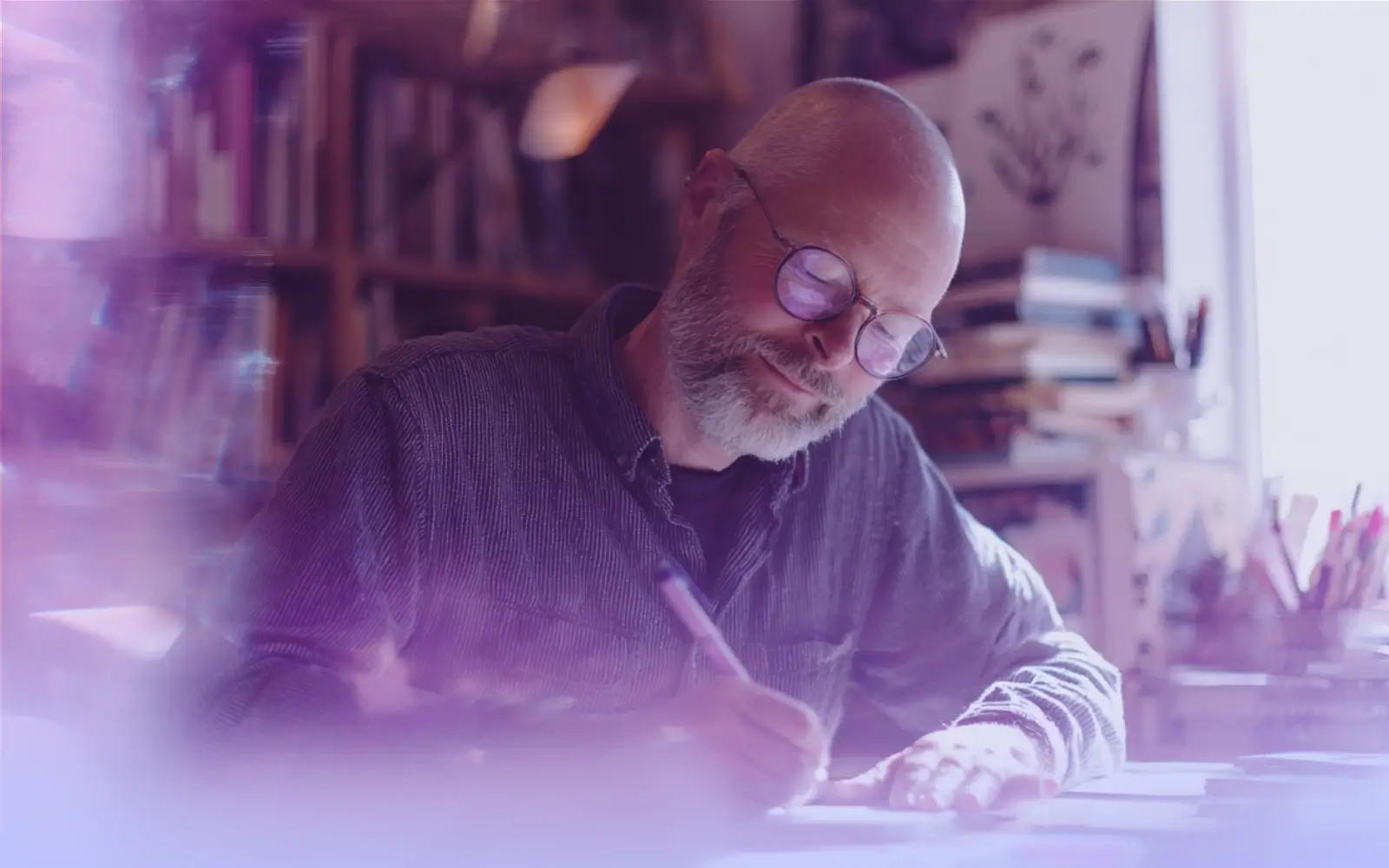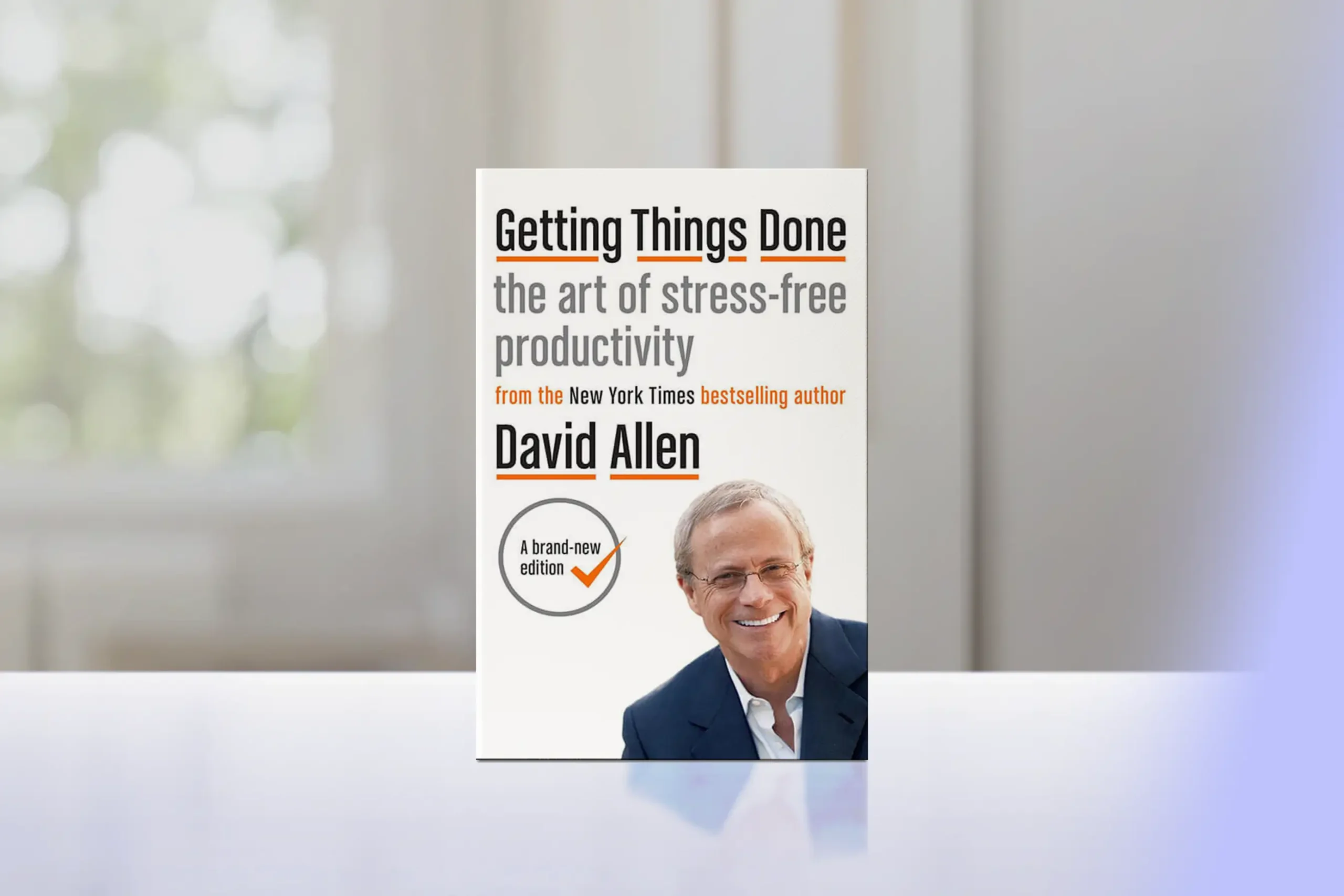It’s easy to feel behind or lost, but you don’t need to have life figured out to start again. Every new chapter is an opportunity for self-discovery, starting over, and finding yourself in deeper ways. What matters most is your willingness to rediscover your true self, embrace personal growth, and step into life transitions with clarity, purpose, and renewed strength on your authentic journey forward.
Inside this article:

1. Rediscovering Your True Self
Life often unfolds with twists and turns that might leave us feeling unmoored and distanced from who we truly are. Yet, it’s precisely in embracing this sense of not having it all figured out that opportunities for transformation arise.
What Science Tells Us:
- People with a stronger sense of purpose had a lower risk of dementia— shown in a global meta-analysis of more than 53,000 people.
- Feeling life has meaning was linked to a 35% lower risk of dementia, regardless of age, sex, or genetics — according to a UK-based study UK-based study of over 200,000 participants.
- Adults with a stronger sense of purpose in their 60s enjoyed better cognitive health and were less likely to develop dementia by age 80 — based on a 28-year longitudinal study.
You don’t need to have life figured out to begin again—and rediscovering your true self is both possible and profoundly beneficial.

2. Life Doesn’t Require Perfection
What if the very idea of “having it all figured out” is actually holding you back from becoming who you’re meant to be? Society often perpetuates the myth that by a certain age, you should have clear answers about your career, relationships, and life direction.
Common Perfectionism Myths vs. Reality
| The Myth | The Reality |
|---|---|
| “I should have my life figured out by 30/40/50” | Growth and discovery continue throughout life |
| “Successful people never doubt themselves” | Most fulfilled people regularly question and evolve |
| “Starting over means I’ve failed” | Starting fresh shows wisdom and courage |
The pressure to appear perfectly put-together can become a prison that prevents authentic personal growth. Perfectionism is paralysis—waiting for complete clarity prevents you from taking meaningful steps. Your interests, values, and dreams are meant to evolve as you gain life experience, and uncertainty actually breeds opportunity by opening space for unexpected possibilities.
The beauty of releasing perfectionist expectations is that it allows you to experiment with who you might become. What would you explore if you knew there was no “wrong” choice, only different paths leading to growth and self-understanding?
For deeper insights into overcoming perfectionist tendencies, explore Overcoming Fear and Doubt: How to Follow Your Own Path. You might also find valuable guidance in Being True to Yourself: A Guide to Authentic Living.
Key Takeaways: Perfectionism is a myth that limits personal growth and life transitions. Starting fresh is a sign of wisdom, not failure. Uncertainty creates space for authentic self-discovery.

3. Starting Over Is Always Possible
Remember the last time you felt truly excited about a possibility—that spark of “what if” that made your heart beat a little faster? That feeling doesn’t have an expiration date. You don’t need to have life figured out to start again, and history is filled with remarkable examples of people who embraced new beginnings at every stage of life.
Inspiring Examples of Late-Life Reinvention
- Agatha Christie – Published her first novel at 40, becoming a world-famous author.
- Samuel L. Jackson – Broke through at 46 with Pulp Fiction after decades of smaller roles.
- Julia Child – Published her first cookbook at 49 and became a TV icon in her 50s.
- Arianna Huffington – Founded The Huffington Post at 55, reinventing her career in digital media.
- J.R.R. Tolkien – Brought The Lord of the Rings to the world in his 60s, changing literature forever.
- Henri Matisse – In his 70s, turned to bold cut-paper art after illness confined him to bed.
- Peter Mark Roget – Compiled Roget’s Thesaurus at 73, long after retiring from medicine.
For more inspiring stories of transformation, explore 16 Successful People Who Quit Everything to Start Over and Succeed and 20 Inspirational People Overcoming Self-Doubt and Setbacks.
What makes starting over feel daunting isn’t usually the practical challenges—it’s the stories we tell ourselves about being “too late” or “too old” or “too settled.”
The Advantages of Starting Later in Life
Life experience provides deeper self-knowledge and clarity about what truly matters, while emotional maturity offers greater resilience when facing setbacks and less need for external validation. You gain the ability to make decisions based on your internal compass rather than peer pressure, plus the capacity to embrace both success and failure as learning experiences.
The key to successful reinvention isn’t having a complete plan; it’s maintaining curiosity about who you might become. What small step toward a new beginning could you take today that honors both your accumulated wisdom and your untapped potential?
Key Takeaways: New beginnings are possible at any age and life stage. Life experience provides unique advantages for starting over. Small steps toward change honor both wisdom and potential.

4. Steps to Rediscover Your True Self
The journey to rediscover your true self begins with honest self-reflection, but it doesn’t require you to have all the answers upfront. Think of it as archaeological work—you’re uncovering layers of conditioning and expectations to reveal the authentic self that’s always been there.
The Four-Phase Discovery Process
Phase 1: Reflect on Your Values and Priorities
Start by asking yourself what truly matters to you, not what you think should matter. Your authentic self emerges when you honor your genuine values rather than inherited or assumed ones.
Essential Questions:
- What activities make you lose track of time?
- When do you feel most like yourself—not performing for others, but simply being?
Phase 2: Release What No Longer Serves You
Inner healing often requires letting go of identities, relationships, or commitments that no longer align with who you’re becoming. Evaluate beliefs about yourself that feel outdated, obligations that drain energy without providing meaning, and habits that no longer support your growth.
Phase 3: Explore New Passions and Interests
Your self-discovery journey thrives on curiosity and experimentation. Take a class in something completely unrelated to your current life, volunteer for a cause you care about, or try creative outlets you’ve dismissed as “not practical.”
Phase 4: Build Daily Habits for Growth
Small, consistent practices create the foundation for lasting transformation. Consider morning pages (stream-of-consciousness writing), nature walks without distractions, or gratitude journaling—noting three things you appreciate each day.
The goal isn’t to find your “one true passion” but to remain open to the many facets of who you are.
For deeper exploration of self-discovery techniques, read Discovering Your Life’s Purpose: Step-by-Step Guide. You might also benefit from 10 Powerful Questions to Discover Your Life’s Purpose.
Key Takeaways: Self-discovery is an archaeological process of uncovering your authentic self. The four phases work together: reflect, release, explore, and build habits. Consistency in small practices creates more insight than sporadic intense efforts.

5. Embrace Life Transitions With Purpose
Life transitions—whether chosen or unexpected—offer unique opportunities for personal growth and self-discovery. Instead of viewing change as disruption, what if you approached it as your authentic self’s way of guiding you toward greater alignment?
Reframing Transitions as Growth Opportunities
| Old Perspective | Growth-Oriented Perspective |
|---|---|
| “My life is falling apart” | “I’m being called to grow beyond current limitations” |
| “I’ve lost my identity” | “I’m discovering new aspects of who I am” |
| “Everything is uncertain” | “Uncertainty creates space for unexpected possibilities” |
Every transition carries both loss and possibility. The discomfort you feel during these periods isn’t a sign that something’s wrong—it’s often evidence that you’re growing beyond your current limitations.
Navigating Change Purposefully
During the Transition:
- Stay curious about what these shifts might be teaching you
- Pay attention to what energizes versus depletes you
- Make choices that reflect your authentic self rather than recreating familiar patterns
Consider how a snake must shed its skin to grow larger. The process isn’t comfortable, but it’s necessary for continued development. Your life transitions serve a similar function, allowing you to release what no longer fits and expand into who you’re becoming.
Finding yourself during transitions often means paying attention to what patterns you’re ready to outgrow and what dreams might now become possible.
For comprehensive guidance on navigating major life changes, explore Navigating Life Transitions: How to Reassess Your Purpose During Major Changes. Also helpful: Cultivating Purpose in Different Life Stages.
Key Takeaways: Transitions are opportunities for growth rather than disruptions to avoid. Both chosen and unexpected changes can guide you toward greater authenticity. Purposeful navigation involves setting intentions and staying curious about lessons.

6. Overcome Fear and Self-Doubt
The path of self-discovery journey inevitably encounters the twin obstacles of fear and self-doubt—not as enemies to defeat, but as natural responses to growth that require understanding and compassion.
Strategies for Building Emotional Well-Being
Immediate Tools: Use the 5-4-3-2-1 technique to ground yourself, practice breathing exercises (inhale 4, hold 4, exhale 6), or engage in physical movement to reduce anxiety.
Long-Term Practices: Journal fears and challenge negative thoughts by asking, “Is this helpful or true?” Track past successes and seek support from mentors or professionals. Uncomfortable feelings often signal growth, pushing you beyond familiar limits, while underlying fear can reveal your deeper capability and authenticity.
Redefining Courage
Courage isn’t the absence of fear—it’s taking meaningful action while fear is present. Your willingness to move forward despite uncertainty is evidence of strength, not weakness.
What would you do if you trusted your ability to handle whatever comes next? What small step could you take that honors both your fear and your growth?
For additional support in working through these challenges, consider Overcoming Imposter Syndrome in Pursuing Your Purpose and Finding Your Purpose: 9 Myths You Need to Stop Believing.
Key Takeaways: Fear and self-doubt are natural parts of growth, not signs of weakness. Different levels of doubt require different strategies and support. Courage means taking action despite fear, not eliminating fear completely.

7. Seek Support and Connection
The journey to rediscover your true self doesn’t have to be a solitary endeavor. In fact, reconnecting with yourself often happens most naturally within the context of meaningful relationships and supportive communities.
Types of Support for Your Journey
Professional Support:
- Therapists/Counselors – Process emotions and develop coping strategies
- Life Coaches – Goal-setting and accountability for changes
- Career Consultants – Navigate professional transitions
Personal Support Network:
- Mentors – People who’ve navigated similar transitions successfully
- Peers – Others currently going through their own discovery journey
- Family/Friends – Existing relationships that support your authentic growth
The Power of Service and Contribution
Volunteering, mentoring, or supporting others can reveal your authentic self, highlight strengths, and build meaningful connections. Surround yourself with people who support who you’re becoming, and seek guidance from trusted friends or professionals. Counseling, coaching, or mentorship provides safe spaces to reflect, process emotions, and develop strategies to live more authentically while embracing growth.
For insights on building meaningful connections, read The Power of Purpose and Meaningful Relationships and Purpose and Relationships: How Shared Values Strengthen Bonds.
Key Takeaways: Self-discovery happens best within supportive relationships and communities. Evaluate current relationships and intentionally expand your support circle. Service to others reveals authentic aspects of yourself while building connections.

8. Live Authentically Every Day
Living authentically isn’t a destination you reach once—it’s a daily practice of aligning your choices with your true values and genuine desires. Your authentic self emerges through countless small decisions throughout each day.
Daily Authenticity Practice
Morning Routine:
- Intention setting – Ask “What kind of person do I want to be today?”
- Energy assessment – Notice your physical, emotional, and mental state
- Gratitude practice – Acknowledge what’s working well in your life
Throughout the Day:
- Does this choice energize or drain me?
- Am I acting from fear or from trust?
- Am I honoring what truly matters to me?
Authentic Living in Different Life Areas
| Life Area | Inauthentic Patterns | Authentic Practices |
|---|---|---|
| Work | Saying yes to everything | Setting boundaries, asking for help when needed |
| Relationships | People-pleasing, avoiding conflict | Honest communication, healthy boundaries |
| Health | Ignoring body signals | Listening to needs, sustainable habits |
Building Sustainable Authentic Habits
Personal Growth:
- Reading or learning something purely out of curiosity
- Taking breaks when needed rather than pushing through exhaustion
Spiritual Growth:
- Spending time in nature without distractions
- Practicing meditation, prayer, or contemplative activities
- Reflecting on questions of meaning and purpose
Relationship Authenticity:
- Expressing appreciation genuinely rather than out of obligation
- Setting boundaries kindly but firmly
Maintaining Authenticity Through Challenges
Living authentically doesn’t mean being perfect or having every aspect of your life perfectly aligned. It means making choices consciously, treating yourself with compassion when you fall short, and maintaining commitment to growth through inevitable setbacks.
What would change in your daily experience if you approached each choice as an opportunity to express your authentic self?
For ongoing inspiration and practical tools, explore 12 Daily Habits To Help You Live a More Purposeful Life and Aligning Your Daily Actions with Your Life Purpose.
Key Takeaways: Authentic living is a daily practice built through small, conscious choices. Regular self-check-ins help maintain alignment with your true values. Compassionate recovery from setbacks is part of sustainable authentic living.
Rediscover Your True Self Today
Rediscovering your true self is an ongoing journey of growth, authenticity, and courage—no matter your age or life stage. You don’t need perfect clarity or a roadmap; curiosity, compassion, and trust in yourself are enough. Every small choice—listening to your intuition, pursuing genuine interests, or practicing kindness—builds an authentic life.
Sometimes the hardest part is simply taking the first step. Growth happens when you embrace both clarity and uncertainty, leaning into experiences that stretch you and expand your understanding of who you truly are.
How to Get Started
- Reflect daily: Spend a few minutes journaling or meditating to reconnect with your feelings and desires.
- Try something new: Explore a hobby, class, or experience that sparks curiosity and joy.
- Surround yourself with support: Seek mentors, friends, or communities that encourage your growth.
Every day brings an opportunity to rediscover yourself and step closer to the life you want. Start today—your authentic self is waiting. Believe in your journey and embrace the possibilities.
Related articles
Being True to Yourself: A Guide to Authentic Living
Practical strategies for living authentically and honoring your genuine values and desires.
Finding Your Purpose: 9 Myths You Need to Stop Believing
Break free from common misconceptions that prevent you from discovering your true calling.
Building Resilience: Bouncing Back from Life’s Challenges
Develop the mental strength and emotional fortitude to overcome setbacks during your self-discovery.
Aligning Your Daily Actions with Your Life Purpose
Transform your understanding of purpose into concrete daily practices that reflect your authentic self.
Further reading
“Man’s Search for Meaning” by Viktor E. Frankl
A profound exploration of finding purpose and meaning even in the most challenging circumstances.
“The Gifts of Imperfection” by Brené Brown
Discusses embracing vulnerability and letting go of perfectionism.
“Atomic Habits” by James Clear
Provides practical strategies for building daily habits that support personal growth.
“The Alchemist” by Paulo Coelho
A timeless story about following your personal legend and discovering your true self.
“`





